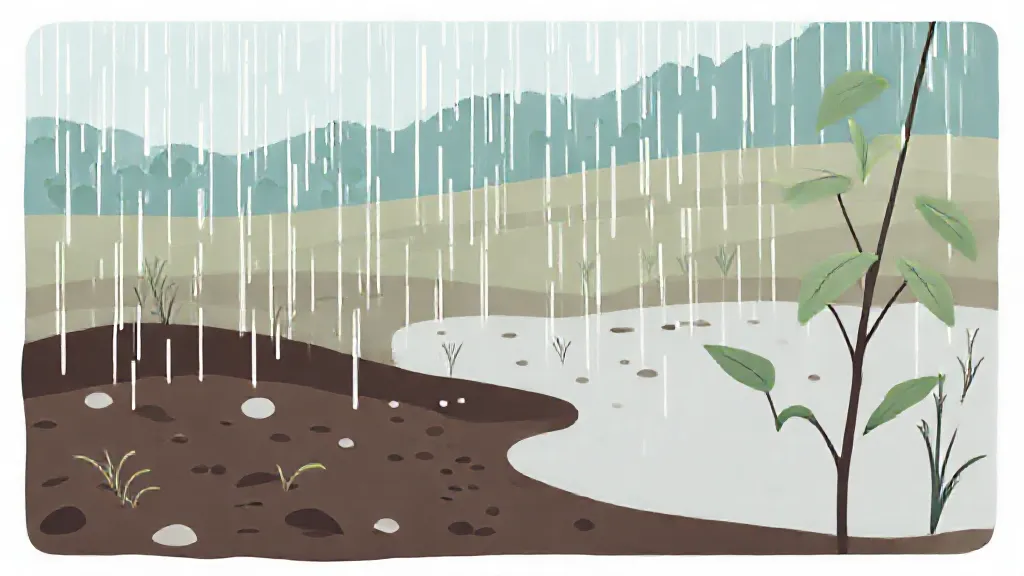The fresh smell that often accompanies rain is a phenomenon known as petrichor. This appealing scent is not just a random occurrence but is the result of a complex interaction between the environment and certain chemical compounds. To fully understand what causes this delightful aroma, it is essential to explore the components that contribute to petrichor, the biological processes involved, and the historical context behind our appreciation of this scent.
The Role of Bacteria in Petrichor
One of the primary contributors to the smell of rain is a compound called geosmin, which is produced by soil-dwelling bacteria, particularly those in the Actinobacteria family. When raindrops hit the ground, they displace geosmin, releasing it into the air. Geosmin has a distinct earthy aroma that is often associated with freshly turned soil.
Interestingly, humans are highly sensitive to geosmin, able to detect it at concentrations as low as five parts per trillion. This sensitivity may have evolutionary roots, as the ability to detect the scent could have helped our ancestors locate fertile land.
Essential Oils from Plants
In addition to geosmin, plant oils also contribute to the scent of rain.
During dry periods, plants release oils into the atmosphere as a form of protection against dehydration. When it rains, these oils are released into the air along with the water droplets. The combination of these plant-derived compounds with geosmin creates the characteristic smell we associate with rainfall.
Certain species, such as eucalyptus and pine trees, are known to release particularly fragrant oils, enhancing the overall scent profile during rain.
The Impact of Atmospheric Conditions
The conditions of the atmosphere also play a crucial role in how we perceive the smell of rain. The temperature, humidity, and wind all influence the concentration and dispersion of the scent molecules.
For instance, warmer temperatures can increase the volatility of the compounds, allowing them to evaporate and spread more rapidly. Additionally, higher humidity levels can enhance our ability to detect these scents, making the aroma of rain even more pronounced.
Cultural Significance of Rain Smell
Throughout history, the smell of rain has held various cultural significances.
In many cultures, it is associated with fertility, renewal, and the promise of growth. For instance, in ancient civilizations, rain was often seen as a blessing from the gods, and the scent that accompanied it was celebrated in poetry and art. This cultural appreciation for the smell of rain underscores its importance beyond just a sensory experience; it connects deeply with human emotions and the cycle of life.
Scientific Studies on Rain Smell
Scientific research has delved into understanding the chemistry behind the fresh smell of rain. Studies have identified over 100 different volatile organic compounds (VOCs) that can be released during rainfall. These compounds vary depending on the geographical location, types of vegetation, and soil composition.
For example, coastal areas may exhibit different scents due to the presence of marine aerosols, while forested regions may have a distinct aroma from the trees and undergrowth.
The Connection to Weather Patterns
Interestingly, the intensity of the rain can also affect the strength of the petrichor scent. Light rain may produce a more subtle aroma, while heavy downpours can release a more robust scent due to the greater displacement of soil and organic matter.
Furthermore, the timing of rainfall after a dry spell can amplify the scent, as the accumulated oils and geosmin have had more time to build up in the environment.
Petrichor and Mental Well-being
The smell of rain has been linked to various psychological effects, often evoking feelings of nostalgia and calmness. Many people report that the scent brings a sense of peace and relaxation, making it a cherished aspect of rainy days.
This phenomenon has been the subject of psychological studies, with findings suggesting that natural scents, including petrichor, can positively influence mood and reduce stress levels.
Conclusion: The Science and Beauty of Rain Smell
In conclusion, the fresh smell of rain, known as petrichor, is a result of a fascinating interplay of biological and chemical processes. From the role of soil bacteria and plant oils to the influence of atmospheric conditions and cultural significance, the scent of rain is a rich topic that encompasses science, history, and human experience.
Understanding this phenomenon not only enhances our appreciation for nature but also highlights the intricate connections between the environment and our sensory perceptions.
